The world of Bluetooth hearing aids is rapidly evolving, providing numerous benefits for those experiencing hearing loss. As we move into 2024, these advanced devices offer seamless connectivity with a variety of smart technology, including smartphones, televisions, and other audio devices. Bluetooth-enabled hearing aids allow users to stream audio directly, enhancing their overall listening experience. This year, models like Jabra Enhance and Oticon are leading the market, offering wireless hearing solutions that adapt to different environments and improve sound quality. Furthermore, Bluetooth hearing aids have become essential tools for maintaining an active lifestyle, enabling users to stay engaged with family and friends through effortless communication. When considering these devices, it’s essential to look for features like app control, noise cancellation, and multiple sound modes, which enhance usability. The shift towards smart hearing aids underscores the importance of technology in healthcare, making these devices more accessible and versatile for individuals seeking to improve their hearing abilities in today’s digital age. Explore options that suit your needs and experience the enhanced benefits of modern hearing aids.

bluetooth hearing aids
Top Bluetooth Hearing Aids of 2024: Comprehensive Reviews
In 2024, Bluetooth hearing aids have transformed the experience of those with hearing loss, providing unprecedented connectivity and convenience. These devices now enable seamless integration with your smartphone, computer, and television, allowing users to stream audio directly into their ears. This advanced technology not only enhances sound quality but also improves user satisfaction and daily interaction with the digital world.
Among the many options available, brands like Jabra, Oticon, and ReSound stand out with innovative features. For instance, the Jabra Enhance model offers a mobile app for wireless adjustments, while Oticon devices can connect directly to Apple and Android devices. Users appreciate features like noise cancellation and customizable sound settings that adapt to different environments, making conversations clearer.
Additionally, many modern hearing aids come equipped with tinnitus masking capabilities and adjustable sound modes, providing effective solutions for those dealing with hearing difficulties. With the growing trend of streaming capabilities, users can enjoy music, phone calls, and even TV shows, enhancing their listening experience significantly.
Pricing varies widely, with entry-level models like Eargo starting around $799 per pair, while high-end options can reach $2,950. It’s essential to compare features and prices to find the best fit for individual needs. The ability to directly connect with multiple devices also eliminates traditional barriers, making Bluetooth hearing aids an attractive choice for many.
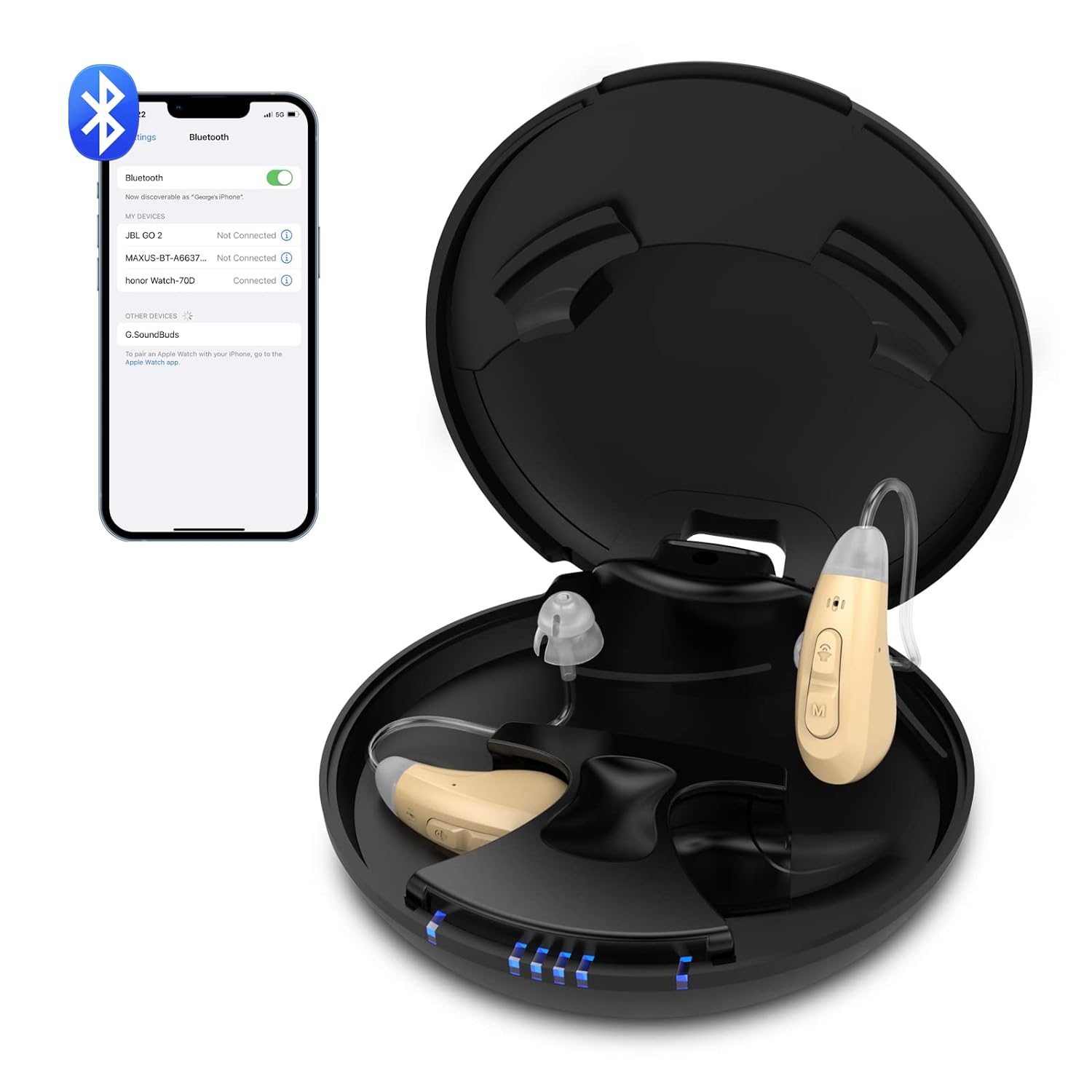
bluetooth hearing aids
Benefits of Using Bluetooth Hearing Aids: Connectivity and Convenience
Bluetooth hearing aids have transformed the experience of individuals with hearing loss, offering numerous advantages that enhance daily living. One significant benefit is the ability for direct streaming from smartphones, tablets, and TVs. This means users can listen to music, podcasts, or phone calls directly through their hearing aids, delivering sound clarity and eliminating background noise, making conversations and entertainment more enjoyable.
Bluetooth technology also allows for seamless connectivity to multiple devices. Many users appreciate that they can connect to their iOS or Android devices, making it easier to manage their hearing preferences without adjusting the hearing aids manually. Furthermore, Bluetooth hearing aids can adapt automatically to different listening environments, ensuring optimal sound quality.
Social interaction is greatly improved with Bluetooth-enabled hearing aids. They enable users to participate more actively in conversations. By streaming audio directly, individuals can hear speech more clearly over ambient noise during gatherings. According to studies, users of Bluetooth hearing aids report higher levels of confidence in social settings.
| Feature | Benefit |
|---|---|
| Direct Streaming | Enhanced audio quality from phone and TV |
| Multi-Device Connectivity | Easy management of multiple audio sources |
| Improved Social Interaction | Increased confidence and participation in conversations |
Additionally, the convenience of adjusting settings through apps on smartphones cannot be overstated. Users can change volume levels, switch programs, and even access hearing aid diagnostics from their mobile devices, allowing for a more tailored hearing experience. This feature not only caters to personal preferences but also enhances the overall usability of the devices.
The emerging Bluetooth hearing technology landscape continues to evolve, with new models regularly introduced that further enhance user experience. With options now available that cater to various needs and preferences, individuals with hearing loss can find suitable devices that provide both connectivity and convenience.
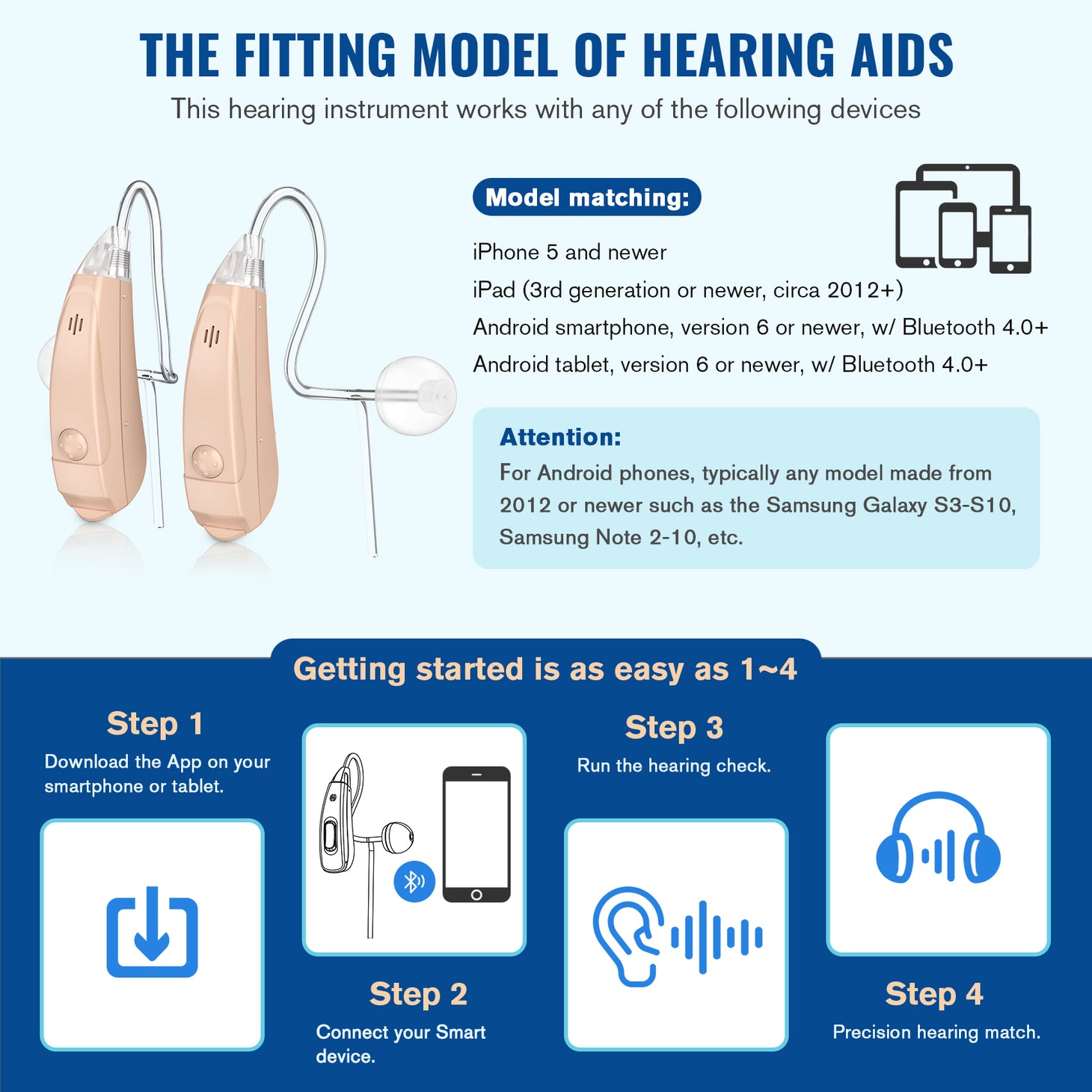
bluetooth hearing aids
Buying Guide: How to Choose the Right Bluetooth Hearing Aids
When shopping for Bluetooth hearing aids, it’s essential to consider several key factors to ensure you make an informed decision. First and foremost, evaluate the compatibility of the hearing aids with your personal devices such as smartphones, tablets, and television. Many modern models are designed to work seamlessly with both iOS and Android devices, allowing you to stream audio directly to your hearing aids.
Next, consider the price range of the Bluetooth hearing aids. Prices can vary widely depending on features, with basic models starting around $799 per pair, while advanced options can exceed $2,500. It’s crucial to find options that fit within your budget but also meet your needs, like noise cancellation, tinnitus masking, or streaming capabilities.
Another important aspect is the professional fitting. It is highly recommended to have your hearing aids fitted by a certified audiologist. This customization process ensures that the devices not only fit comfortably but also function effectively for your specific type of hearing loss. Properly fitted hearing aids can significantly enhance your listening experience.
Do not forget about the battery life and charging options. Many Bluetooth hearing aids are available with rechargeable batteries, offering convenience without the hassle of frequent replacements. Check user reviews and determine if the device’s rechargeable capabilities meet your lifestyle needs.
Lastly, ensure that you explore your options concerning service and warranty. Reliable customer support and a solid warranty can make a significant difference in your ownership experience. Look for models that offer comprehensive support and extended warranties to safeguard your investment.
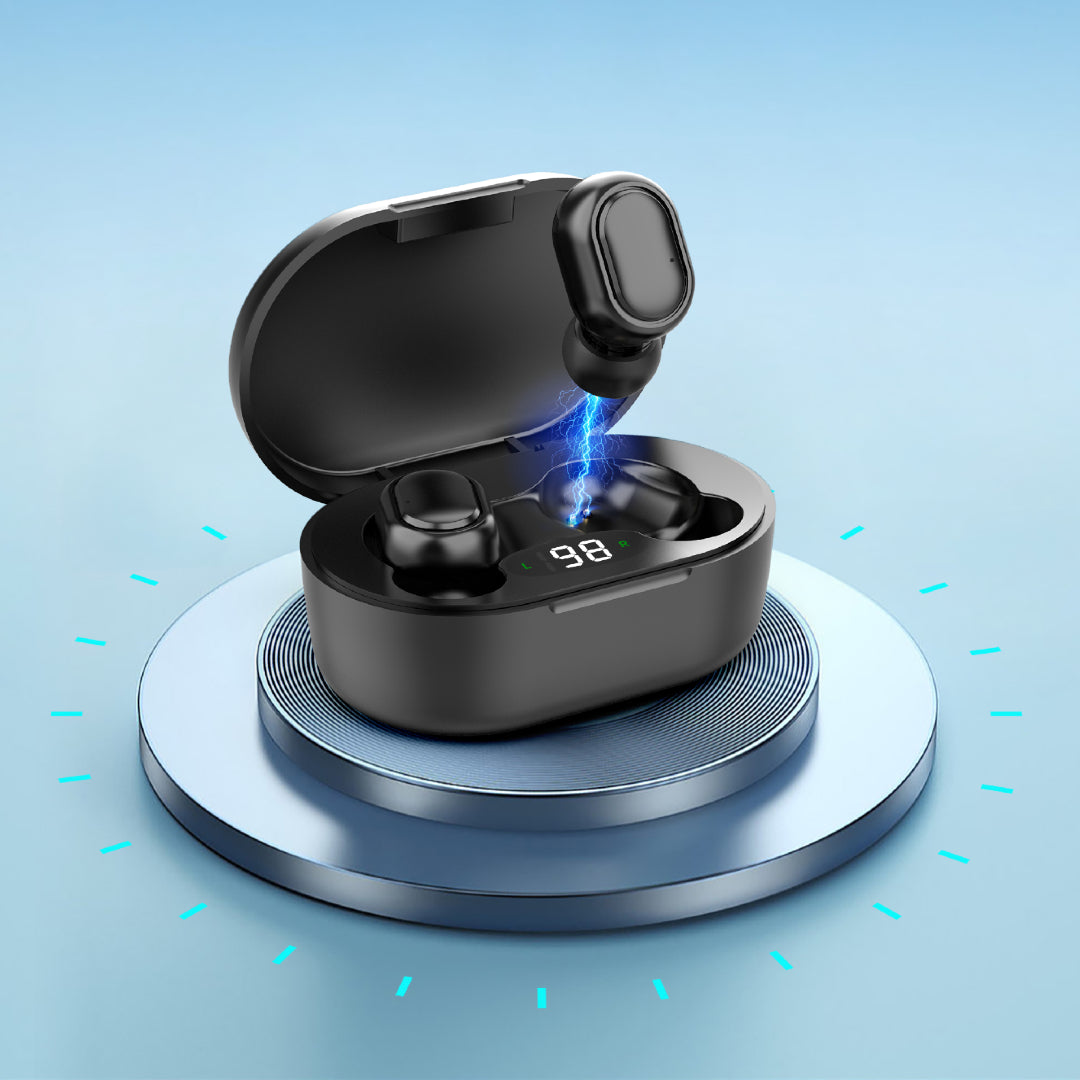
bluetooth hearing aids
Understanding the Technology: How Bluetooth Hearing Aids Work
Bluetooth hearing aids utilize advanced wireless technology to connect seamlessly with various devices such as smartphones, televisions, and computers. This connectivity allows users to stream audio directly, enhancing the hearing experience significantly. The two main categories available in the market are over-the-counter (OTC) and prescription models, each with unique benefits and specifications.
A major feature of Bluetooth hearing aids is their ability to facilitate audio streaming. Users can stream phone calls, music, and even television audio directly to their hearing aids. This not only improves sound quality but also creates a more personalized listening experience. Many modern models support both iOS and Android devices, making them versatile for different users.
Battery life is another critical factor when it comes to Bluetooth technology in hearing aids. Most models boast a battery life of approximately 24 hours, depending on usage. Some devices come with rechargeable options, reducing the hassle of frequent battery replacements. It’s essential to consider how often you will use the streaming function, as this can impact the duration between charges.
When choosing a hearing aid, potential buyers should evaluate the differences between OTC and prescription models. While OTC hearing aids offer a more affordable option, prescription devices often provide a higher level of customization and support. Both types benefit from Bluetooth connectivity, but those requiring significant adjustments may find more success with prescription options.
Understanding the technology behind Bluetooth hearing aids can lead to informed decisions, ensuring a tailored experience that meets individual hearing needs.
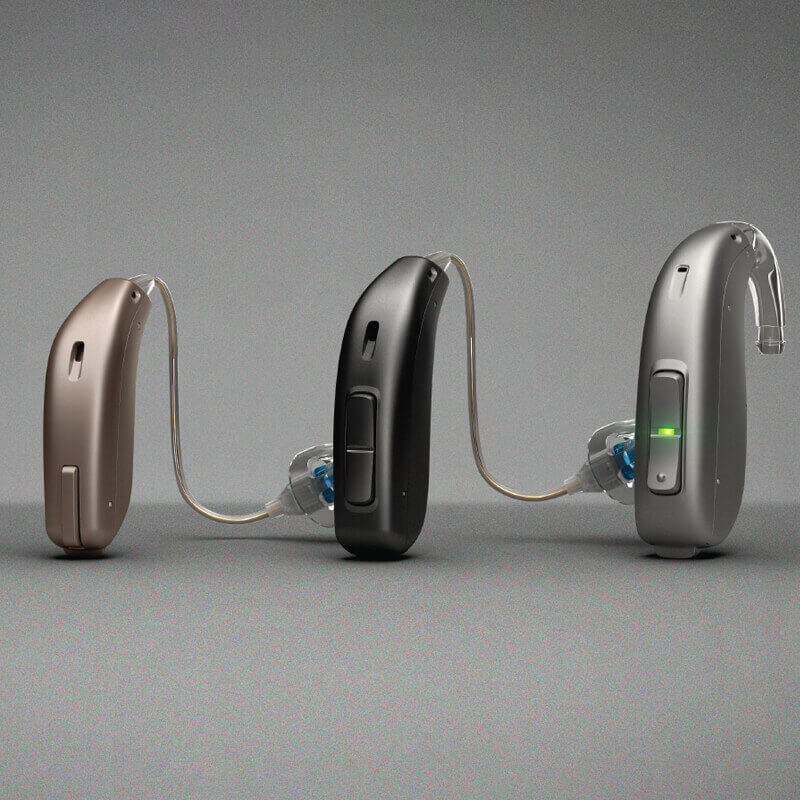
bluetooth hearing aids
Real User Experiences: Testimonials and Reviews of Bluetooth Hearing Aids
Bluetooth hearing aids have revolutionized the way users experience sound, allowing for seamless connectivity with smartphones, TVs, and other devices. Many users appreciate the convenience and ease of use that these modern devices offer. For instance, one user shared that streaming their favorite music directly to their hearing aids made a significant difference in daily enjoyment and social interactions.
Others have noted the audio quality when using Bluetooth hearing aids, which can transmit HD sound directly to the ear. This integration allows the wearer to maintain a normal conversation while still being connected to their device. However, some users have encountered challenges, such as battery life concerns when using Bluetooth features extensively. One testimonial indicated that while the comfort and style of these hearing aids are impressive, ensuring batteries remain charged was a slight hassle.
Furthermore, users highlight the compatibility with various operating systems, with many models supporting both iOS and Android platforms. This versatility allows for an inclusive experience, making it easier for users to connect with their devices without hassle. An older user reported that being able to adjust settings through an app directly on their smartphone was a game-changer for independent adjustments.
However, it is essential to consider the initial investment required. The pricing for Bluetooth hearing aids varies, with models like Eargo starting around $799 per pair, while advanced options may exceed $2,000. Despite the cost, many agree that the advantages, such as connectivity and improved hearing experiences, justify the expense. Overall, the positive feedback surrounding Bluetooth hearing aids indicates a growing satisfaction among users navigating the challenges of hearing loss.
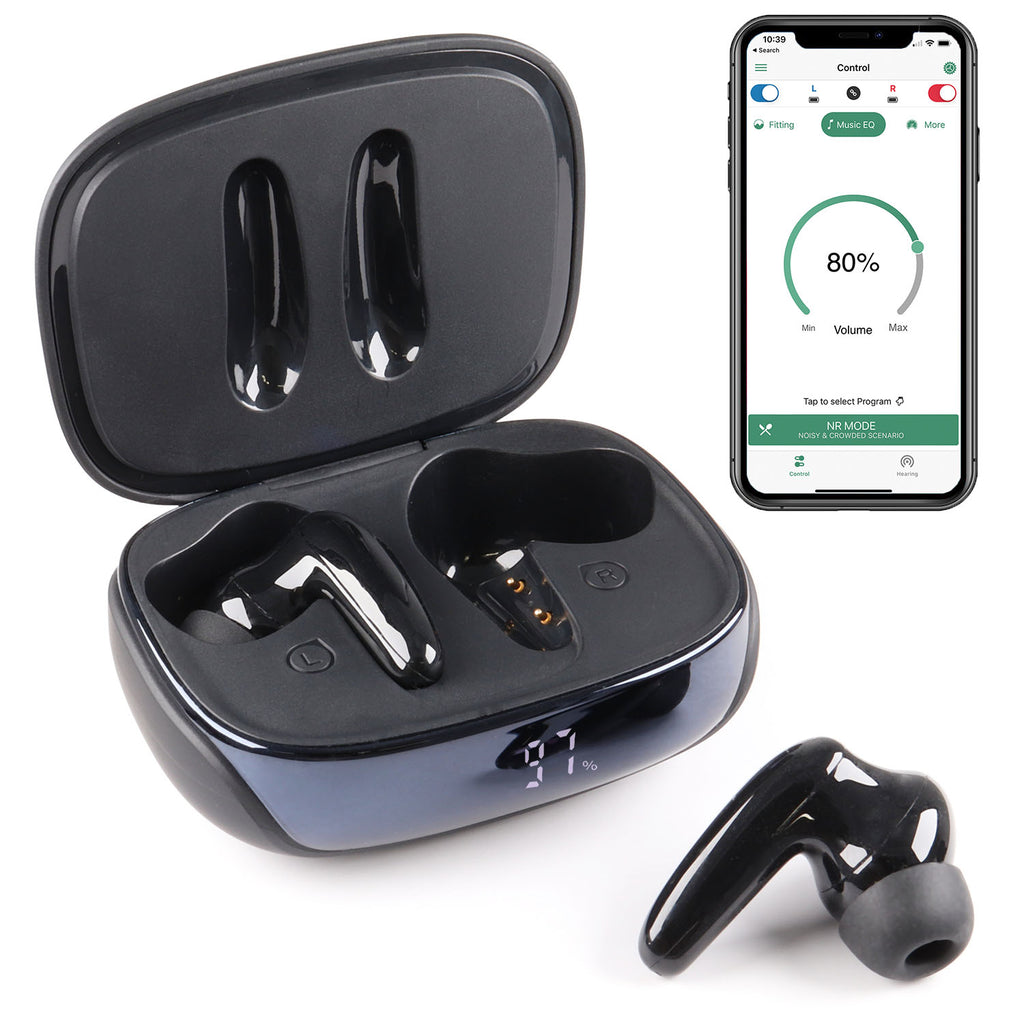
bluetooth hearing aids
Future Trends in Bluetooth Hearing Aids: What to Expect
As technology progresses, Bluetooth hearing aids are set to revolutionize the user experience significantly. Upcoming advancements will prioritize connectivity with smartphones, TVs, and other personal devices, enabling seamless audio streaming. With features like direct phone call streaming, users can enjoy better clarity during conversations while minimizing background noise.
Innovation in battery life will also enhance usability. The latest models might boast extended operational time, allowing for all-day use without the need for frequent recharging. Furthermore, the introduction of Bluetooth 5.2 and later versions will facilitate improved connectivity and reduced latency, offering users an even more synchronized audio experience.
Another exciting trend is the implementation of smart features. Future Bluetooth hearing aids will likely incorporate machine learning and AI to automatically adjust settings based on the user’s environment, improving clarity and comfort. For example, these devices could filter out unwanted noises in crowded areas or enhance speech recognition during conversations, making them more user-friendly.
Moreover, telehealth solutions in hearing aids will allow for remote adjustments and consultations, providing users a more convenient way to address their hearing needs without frequent visits to audiologists. This not only saves time but also enhances user satisfaction and engagement.
Additionally, with a focus on personalization, future models may offer advanced customization options through dedicated mobile apps, enabling users to fine-tune their settings easily to suit their preferences. Overall, the future of Bluetooth hearing aid technology is promising, paving the way for greater adaptability and enhanced user experiences.
Frequently Asked Questions about Bluetooth Hearing Aids
Bluetooth hearing aids have become increasingly popular, offering a range of benefits for individuals experiencing hearing loss. One common question is whether Bluetooth hearing aids are better than traditional models. Many users find that the integrated technology enhances their listening experience, providing clearer sound quality through direct streaming from devices.
Another frequent query is about their compatibility with TVs. Yes, Bluetooth hearing aids can easily connect to televisions, allowing users to enjoy audio streaming directly to their hearing aids while still permitting general sound in the room—a significant advantage for shared viewing experience.
Battery life is a crucial concern as well, with most Bluetooth hearing aids designed for long-lasting performance. Depending on the model, users can expect battery life ranging from 16 to 24 hours on a single charge. Brands like Eargo and Resound offer various options that include fast-charging capabilities to ease daily maintenance.
When considering cost, Bluetooth hearing aids typically range from $799 for models like Eargo’s LINK to over $2,900 for high-end options. This pricing provides flexibility for different budgets while ensuring that advanced hearing technology is accessible.
Users also often ask about phone call functionality. Bluetooth hearing aids can indeed connect directly to smartphones, facilitating clear audio during calls. This feature not only improves call clarity but also enhances privacy by minimizing background noise through direct streaming.
Overall, Bluetooth-enabled hearing aids are a modern solution catering to various needs—from simple phone connectivity to complex listening environments, ensuring users remain connected in today’s fast-paced world.
Frequently Asked Questions About Bluetooth Hearing Aids
1. Are hearing aids with Bluetooth better?
Bluetooth hearing aids are an effective management option for individuals with any degree of hearing loss. They incorporate advanced technology, allowing for automatic adjustments to the user’s environment, ultimately enhancing the listening experience without additional mental strain.
2. Can I listen to TV with Bluetooth hearing aids?
Yes, Bluetooth hearing aids function similarly to wireless headphones. The audio output from the TV can be streamed directly to your hearing aids, which allows you to enjoy sound that also plays in the room with family and friends.
3. How much do Bluetooth hearing aids cost?
Prices for Bluetooth hearing aids vary significantly. For instance, Eargo’s most affordable model is priced at $799 per pair, while models with more advanced features can range up to $2,950 per pair, depending on the technology and design chosen.
4. Can you talk on the phone with Bluetooth hearing aids?
Yes, you can make phone calls through Bluetooth hearing aids. This capability allows direct streaming of phone calls to the hearing aids, reducing feedback and making conversations clearer and more private.
5. What types of devices can Bluetooth hearing aids connect to?
Bluetooth hearing aids can connect to various devices, including smartphones, tablets, laptops, and televisions, providing a seamless audio experience across multiple platforms.
6. Are there any disadvantages to Bluetooth hearing aids?
While Bluetooth hearing aids offer many advantages, some users may experience concerns related to battery life due to continuous streaming and potential connectivity issues with certain devices.
7. Do Bluetooth hearing aids require special apps?
Many Bluetooth hearing aids come with companion apps that allow users to customize settings, adjust volume, and control the streaming features directly from their smartphones.
8. What are some popular brands of Bluetooth hearing aids?
Popular brands include Eargo, Resound, Oticon, Starkey, and Jabra Enhance, each offering a range of models equipped with Bluetooth technology to suit different needs and preferences.